|
Bloodstock cherishes and relishes the opportunity to showcase metal bands from all over the world, this year they reeled in Nepal's Underside, a Groove Metal / Metalcore leviathan that is taking the Asian Metal scene by storm. But it has not always been plain sailing for the band as vocalist Avishek KC explained to GMA, he spoke to us about the Nepalese economy, challenges the scene and band faced, the importance of the Ghurka and how metal unites world cultures. "No one bought CDs... you couldn't afford it, 20-30 US Dollars would be like 3,000-4,000 Nepalese Rupee (NPR)... my pocket money for 2 months to buy one album" KC, how did Underside come about? What challenges have you faced? "We started Underside after the country suffered war, we were tired of shifting from one band to the other so we go together and started this whole new project, with a lot of energy and anger. Oh man, where do I get started? Ok, the survival itself in a country like Nepal is number one just in terms of the economy, everyone goes through that it's normal, then you have the police, the system, the security, the society, they hate everyone with long hair. There was a time where police used to grab you and chop your hair off, just for looking like different. It's not the first time, I've been through that on many levels and if you're walking in the middle of the night, get in. It's changed a little bit now comparatively but, and then there were the power shortages, we had power out for like 16 hours a day so imagine being in a band, and that was because the Government was selling electricity illegally to companies and they found out the whole country was in darkness for 10 years because of some corruption in the system. When there is no light it has a ripple effect, on your job, timings, everything and itself being in a country that far is a big challenge trying to get your music out here so you talk to someone and it's like 'OK let's watch it if you're here' if you get a gig or two, I think those are some of the few challenges faced so far. Getting gear in Nepal is fine, it's not that hard but they don't sell the expensive stuff because no one can afford it, so there are a lot of music stores that sell low-grade guitars from 200-400 USD so you can make do with what you can get." How long has the Nepalese Metal scene been going? What is it like? "It's been there but in it's infancy, it has been there for a while but not for a while, not very long. Now it's slowly coming up with our best but it's not an easy job, it's a struggle everyday so. Yeah we have one we do as a band and as a team put on Silence Festival, the only metal festival otherwise there is no metal festival scene at all, so it's a brand new culture slowly coming out, it's a lot of hard work for us to, even to put one show on. It's insane, even within the country Kathmandu is so centralized, now we've sort of taken over the city with our music and put show on in front of what 800 people in a venue a few days before Bloodstock. Now we're focusing on outside of the country and are going to the rural places, probably will be doing a little bit of India, so that's the plan to go on." Would you play in neighbouring Bhutan? "Yeah of course! I would love to play there with Underside, I think we have some fans from Bhutan who message us on our social media, so yeah that would be sick". What do your parents think of your music? When did you want to become a musician? "My parents have never... I think my dad once came to the show and just left after two songs, that was also because my nephew and niece wanted to come, so he came four hours early and I asked him to come again and then he came back and instantly left. My mum has never seen my shows so. I don't know, I think I always use to want to become a musician when I was a kid and I guess it was what I wanted from the band, I think it was when I heard Pantera and then I wanted to play guitar, but I then said no you can't play guitar you got to sing. But it was always there, I always love the culture of being in a band, playing music it just spoke to me so... ever since I can remember." What was the journey from Kathmandu to Bloodstock like? Tell us what happened. How did you get invited to play Bloodstock? "Ah man, it's been pretty crazy with two flights, 6 hours on one plane and two hours break and then 8 hours on another plane and then our home and then a 4-hour drive to Bloodstock. So yeah that's pretty much a little journey, but before that there's been a lot of preparation where we were working on production, we were trying a smaller scale production pretty much for the first time, for Bloodstock we want to bring a little bit of home, just been talking to the production crew in the tent so yeah we worked pretty hard and prepared to do it. Well we received an invite, I have got a few friends here and promoters who have been working for the festival in the past, so we started a good relationship over the years you know, I think it's from peoples love and friendship that has made the band what it is." Do you feel that Nepalese band coming to play in the UK could aid tourism in Nepal? "I think it does because like we're representing where we are from and people get to know where you are from and I'm telling you about this because you asked about the problems, if you ask me about the good stuff there are a lot of good things, good people, they're the most helpful and I think friendly people you meet going about disregarding the society, the police, the system. But yeah I think it does, when people get to understand and connect, I think it does help in some ways." With the UK and Nepal sharing a long history together, do you feel it's ever more important to support the Ghurka's? "I think it's a cool thing that we have that relationship with the Ghurka's and like, it's been there for years and it's always good to fuse and connect on a certain level, keeping a healthy relationship. So it's always good to cherish, improve it and make it better. I think it's great, times like this when conflicts are happening, problems with each other and everything all the time, I think it's a great thing that we connect." Who was the biggest band to play in Nepal thus far? Has the Nepalese Government become more relaxed in recent times? "I think Behemoth, Vader, but no I think Behemoth is still the biggest to have played Nepal so far. Yeah I mean even last year the police were just bar-standing, we had so many problems trying to get the Twelve Foot Ninja boys out of the airport because the Government did not understand the system of bringing in your own equipment and stuff, it's just like you can't do whatever the f**k you want; 'I've got it, everything in a letter' and they were like 'we don't know come back Monday' and I was like 'dude the festival is today, you can't tell them to come on Monday', and I had to be on stage in 30 minutes so we play after the band because I was still at the airport stressing." So is Nepal still a slightly conservative country? "Yeah yeah in regards to metal music and being out there with your long hair and looking like all of us here it still is, it is an open place for tourism as we get a lot of tourists, but when it comes to the society; they have a different attitude towards it, because we are from the inside and are kind of rebels. But you go there and do things that we do, so they have a different approach for how you're treated." What did you listen to when you were in high school? "A lot of Pantera, Metallica, Slipknot... I was in a Black Metal band, there was something about Black Metal that I really love, it's been a while when I was listening to Mayhem, Nargaroth, Burzum, I love that stuff back in the day and also a lot of alternative stuff. So there was a lot to listen to, you used to have a lot of friends into different things, we were listening to pretty much everything. Listening to the old stuff on vinyl, Hendrix, Manson and stuff, depends on who you hanged out with back in the day. I loved albums by the likes of Korn, anything you can get your hands on, but it was so hard to get music at that time - if it was metal, everyone would just listen to it and no questions asked. No one bought a CD, you couldn't get it because you couldn't afford it, 20-30 US Dollars would be like 3,000-4,000 Nepalese Rupee (NPR) and that would be my pocket money for 2 months to buy one album. You couldn't get it even if you said you'd save up to buy it, so whatever you had you listened to it as much as you can. For the UK a £10-£15 album would be like 2,000 NPR and that's a lot of money for us at that time especially when we were children. What could you buy for 2,000 NPR? "Nothing man, just like cigarettes... a little bit more than that, not a lot, definitely not a lot. Maybe lunch and stuff, you could buy posters and stuff, bootleg albums, etc., Nowadays children have the spending access, they can buy guitars; I got my first electric guitar when I was 16 and it cost about 200 USD and it was a fight; my parents got it in but it was a brutal fight." Do you have any greetings or thank you's that you wish to send out? "Yes, thank you to you man for talking to us or any other press that's talking to us at Bloodstock; it's amazing to be here, our crew, all the boys, our fans and people back home." https://www.facebook.com/TheUnderside/
0 Comments
The UK and Nepal have a long standing history with each other, right from the early days of the Ghurkas through World War 2 and into the modern day, the British-Nepalese bond is strong indeed. Aside from that the metal scene out there is thriving despite it's lack of representation on the international stage. Bands like Dying Out Flame signed with Spanish label Xtreem Music, Kalodin had a stint in Singapore and Antim Grahan's activities are unknown, but here are three bands who have had an impact on the wider global metal community. However, there is one band who arguably is waving the flag for the Nepalese Metal scene, scheduled to perform at Bloodstock Open Air this year, Underside are on course to make history as they tell GMA it's not easy being a metal band from this landlocked Himalayan nation. Hey guys, can you give us a brief history of the band, how did you form, were you in bands previously? "Yeah we formed after the guitarist (Bikrant) and I (vocalist KC) met at the Silence Festival in 2010, Dr. Pandu (guitarist) and I were in a band before Underside. Our first show was at Silence Festival 2011 and later on Nishant Hagjer, the drummer from Undying joined Underside and has been with us for 3 years now" Nepal has a really good underground scene with bands like yours, Antim Grahan, Kalodin and Dying Out Flame gaining attention overseas; and your festival KTM Rocks too, what are the main challenges that you face as a Nepalese Metal band? "Yes it is a pretty decent scene, however not many bands have been able to break out, like all 3 of the other bands you mentioned aren’t active right now. Which is the main problem, bands form and split up easily and don’t thrive. There are so many social and economic problems (we can go on all day) that it’s a fight to be in a metal band everyday in a country like Nepal, but it’s something worth fighting for. What are your plans before your date with Bloodstock Open Air, how are you guys feeling? Will this be your first time on British soil? Will you be doing a tour of the UK. "Yes we are super excited and I’m writing to you from Singapore as we are in transit. We are heading to New Zealand for 3 dates with Twelve Foot Ninja and then to Australia for 4/5 headliner shows (across April and May) with several local bands. We have a few shows to be announced back home in Nepal for the end of July before we go to Bloodstock. This is not our first time in the UK, but we can’t express how excited we are for Bloodstock, we will have something special and worth watching for everyone there. Regarding tour plans I think we are still finding a few shows, but open to any offers and invitations." The UK and Nepal have a long-standing history; most notably the Ghurka's fighting alongside the British in both world wars, how important is it to remember the relationship we have as nations and as people? "I think it’s important to remember that humanity should come first irrespective of race, nationality, religion or anything. But it's very cool and beautiful that a mutual love and respect exists between the 2 countries and it should be cherished." Have you had bands from the likes of India, Bhutan, China and Bangladesh come over to play? How hard is it to organize a gig or indeed a festival? "Not very often, it’s super difficult to pull off shows. We do our own festival (Silence Festival) and do small shows with some bands from India and stuff, but it’s super hard to stay afloat." Your new album is set to be released soon, will this be released via a label? "We actually released our LP independently without any label and have already started working on our first album for early 2019. There are talks but nothing solid so far, we have been an independent band and it’s been okay so far, but if we get a good offer then why not." What plans have you got for the rest of the year? "It’s been a good year, we toured India and played 3 shows, we did a six-show tour in Nepal and are now on the Australia and New Zealand tour, ultimately Bloodstock and hopefully more touring and working on the record." https://www.facebook.com/TheUnderside/ Interview by GMA's Bangladesh correspondent Nabil Abaddon GMA has always tried to sift out raw talent from the most exotic corners of the world. One really has to go on an expedition and look out for such bands who are nowhere near to be discovered by the Metal world. Nepal is one country with raw local talent and some really dedicated concert organizers. They not only have a small Metal scene in the hills, but also they have big Metal Fests every year where they have brought bands like Napalm Death, Behemoth, Decapitated, Vader, Nervecell, Arsames, etc along with big names from the neighboring countries. We shine the light today on a four piece Thrash Metal band from the depths of Nepal, called Bidroha (which means 'rebel or retaliation' in English). Bidroha self-released their debut album “Suffer Till Death” last year and have toured Hong Kong in January this year. These chaps are quite popular in the local scene due to their Thrashy stage performance, which had earned them a place on the same bill with Decapitated and Nervecell at Nepfest IV last year in the capital city Kathmandu. Apart from that, they have a split release with Argentine Heavy / Thrash band Insignia. I spoke with Bidroha’s front-man / rhythm guitarist Saurab Sainju about his band and the local scene. Here is an excerpt of how the conversation went…. Apocalyptic hails brother Saurab! Your band just released its debut full length album “Suffer Till Death” last year. How is the band doing right now? Saurab: Hail GMA. After the release, we have been refurnishing ourselves for the album tours which started from January 26, 2014 in Hong Kong. Originally Amar Sakya who was the drummer of Bidroha, due to his personal reasons was unable to continue the album tour for an uncertain period of time. Therefore Bidroha found a new session drummer Akash who joined our overseas tour at that point. Also Bisal our bassist went abroad and I, myself have recovered from a broken hand and we are inactive due to that. Listen to Bidroha’s promo demo from their album Suffer Till Death here. Please tell us what were the directions and motivational factors that started Bidroha? Saurab: Bidroha came into existence after Zantu and I disbanded our previous band and as always I wanted to start and play the Thrash Metal genre since the initiation phase of my Metal music interest. As the Thrash Metal genre should not be fading away from the scene, I felt why not revive it back again. So Zantu agreed with my suggested theme and joined me, afterwards we found Amar as a drummer and Saugat as the bassist. Saugat decided to continue his further studies and left the band. Then Bsal joined the band and this is how Bidroha was born! Bidroha’s album “Suffer Till Death” came out in November last year. What kind of response are you getting from the fans? Saurab: Till now the responses and album reviews from our fans and supporters are all positive! A dream doesn't become reality through magic, it takes sweat, determination and hard work. This is what we believe. Bidroha toured Hong Kong at the very beginning of this year. Would you care to tell us about the whole experience? How was the show and what kind of reaction did you get there from the crowd? Saurab: Well, the experience was awesome. It was one of our most memorable tours ever. We had two shows, 26th and 28th January, and the first show was in ‘Backstage’, which was good. Although we were drunk and got carried away with it, the show was good. The second gig was in Yak and Yeti Restaurant. The crowd there was mostly non metalheads, we played two rock songs and jammed through it. We are thankful to those who came to support us, taking out their time from their busy schedules, and one thing was sure, even though many of them were not metal heads, they really supported us from their hearts. Yeah and not to forget, I went hiking with the NRN (Non-residential Nepalese) guy who brought us in Hong Kong after my band mates left for Nepal. I forgot to mention that I was overwhelmed with their support by buying our T-shirts and CD's. That’s great to hear. Will you tell us who Bidroha is inspired by? Saurab: Well, we all have our own tastes in music. But when it comes to Bidroha, our music is mainly inspired by Thrash metal legends like Megadeth, Slayer, Metallica, Exodus, Kreator, Destruction etc. Alright. Lets get to a different topic. As much as I have heard, there are loads of Metal bands in Nepal but Bidroha is pretty much the only Thrash Metal band over there. Can you tell us what can be the reason behind that? Also please tell our readers about the Nepalese Metal scene, as in the bands, musicians, gigs everything. Saurab: Yeah, we are the only old school Thrash band here in Nepal at the moment. The reason behind this is that Thrash is an old genre which was alive in 80's era and it's dead now. So, now it's 2014 and new genres are emerging and taking over the old ones and people listen to their choices of course. Here in Nepal, especially in Kathmandu, the scene has been developing for the past 3 years. It's progressing more with the proper sound, stage, amount of crowd etc. It only lacks the proper quality of crowd who are truly Metalheads and also we don't have venues for the indoor and outdoor gigs. There are always showstoppers (police) in almost every concert. Outside of the valley, there are only places like Hetauda and Pokhara, knowingly the most happening places for their Metal Scenes at the present. As for the bands, there are more new bands coming into the scene. Some stick to the music and some leave the scene with no hopes and play other genres. Basically, when we talk about underground bands, each bands or musicians, there are very few bands that get paid and most of the bands they can't even think of surviving only by playing and depending on their music career. Some of the bands may want to continue playing; it is because a true musician never wants to give up his passion. What do you think of the sites posting underground Extreme Metal materials? Listen to Adhipatya Ho Danav Ko by Bidroha here. Saurab: It depends on the sites. For example, there are lots of Facebook pages that are supporting and posting underground stuff but a lot of the pages in someway, just want to get more likes on their pages and even post the wrong information about the bands. If any site is giving wrong information about any band, those sites must be stopped and those who truly collect authentic information about the bands and update their pages or sites are definitely supporting the scene. Nepal has been visited by some major Death Metal acts like Vader, Nepalm Death, Decapitated, Behemoth etc. Which Thrash bands would you like to see in Nepal in the future? Saurab: I would love to see the German Thrash bands in Nepal. Coming to a different topic, having a devastated economy in Nepal, how much does this affect the musicians and organizers who put on shows? How much are the quality instruments available in Nepal?
Saurab: First of all, it's hard to find proper indoor or outdoor venues for Metal gigs in Nepal. I must say, you have to be lucky enough to find a proper venue, and then organizers have to pay a high amount towards the venue charge. Besides that there are our show stoppers (police) who would stop the show without any reason or notice. As for musicians, they don't get paid most of the time and its mostly the musicians who invest their money from their own pockets. Most of the headlining bands end up not playing in the shows because of the police’s invasion. A lot of the people who come to the show, would either ask for free passes or they would ask for over 50% discount to get in. This way our shows ultimately face a heavy loss. To answer your second question, if you can pay well, then best quality instruments are available. So what are you guys planning on for the next year? Anymore overseas tours? Saurab: We had plans to have the album tour in Nepal, India and Hong Kong but the tour was in Hong Kong only. Unfortunately, it's getting late for the tour due to the problems we have. Now we have found a new bassist and Amar is back. Let's hope we can still do this tour. If not, then we will do some gigs excluding album tours and will be taking a rest for months to continue our normal life like studies, jobs and will be back again. Thank you so much for your time Saurab. Really appreciate it! Any final words for Bidroha fans? Saurab: Well, first of all thanks for having me on board. Thanks to all the supporters, fans who have been supporting us from the begining till now. We have released our debut album "Suffer Till Death" and if you haven't grabbed on it yet, go grab it now. Your feedback would be appreciated a lot. Lastly, Thank you very much for appreciating our work. Thrash'em all \,,/ https://www.facebook.com/BIDROHA By GMA's Bangladesh correspondent Nabil Abaddon In the search for Extreme Metal bands from the most exotic corners of the world, we shine the light on a small South-East Asian country called Nepal, a country that has burst out as an emerging Metal scene in the last few years with a bunch of talented local bands and the consecutive arrivals of Metal acts like Vader, Napalm Death, Decapitated, Behemoth, etc. We searched a bit more and stumbled upon a band called Dying Out Flame. Dying Out Flame is a five piece ‘Vedic Death Metal’ band, a particular sub-genre that originated with Rudra from Singapore. The name Dying Out Flame comes from the Hindu tradition of cremation. It is the last phase of the burning of a corpse. As the band moniker suggests, Dying Out Flame plays a unique brand of Extreme Music that incorporates Death Metal with ancient Vedic / Hindu philosophies and mythologies through the use of Eastern Classical chants, complex time changes, Death growls mixed with clean vocals and what not. They have played many local gigs and festivals and are now busy with the recording of their debut album. I managed to talk with the band leader, vocalist and bassist Aabeg Gautam over the net. An excerpt from the chat follows below. GMA: Greetings Aabeg! Welcome to GMA Interrogations. Hows it going with your band? Aabeg: Thanks, we are doing great. A lot of things are going on at the moment. We are recording our debut full length album which will be released sometime in early / mid 2014. We are also performing live on regular basis. So stay tuned for massive 'Vedicization'. We have also been through some line-up changes on guitars because Saurav khanal was kicked out few weeks ago due to his false respect and attitude towards the band and music. We have however found a good replacement and we will come more powerful in upcoming days. Altogether we are really busy and exicted about everything going on right now. Watch their song “Annihilation of Jallandhara” here GMA: Dying Out Flame is a “Vedic Death Metal” Band. So tell us how do you define the term 'Vedic Death Metal'? How do you write your lyrics and compose the songs keeping that in mind? Aabeg: If you'd make a 30 second study of our work you'd soon realize what is Vedic Death Metal. It is Death Metal music totally based on Hindu themes and Vedic literatures. it's the mixture of words and music derived from Sanskrit Vedic mythology / philosophy incorporating with ancient shlokas and fusing traditional Hindu classical music into Death Metal. To answer your second question, when I compose music and lyrics, there is no set formula. It all depends on time and place. I might have a riff in my head, a drumbeat or a mythological / philosophical theme that the song would be based on. I take those things and build an entire concept for the song around that. It just evolves and evolves from there, and there is always an emotion that works whilst making every song. It just comes to me from my inner feelings, thoughts and eternal love and dedication for Death Metal, art and religion.._ GMA: As far as I know, you guys started as a Technical Death Metal outfit. What made you change your genre? Aabeg: These days, Death Metal has become a bit too glamorized and popular. I rarely see anything new these days. I see nothing but bastardization of artistry and style only and it sickens me. We don't want to play the same thing again and again which has become a trend these days. So to keep the music interesting, fresh and away from the trend, we had to make some changes to our sound. As we had some concepts of Hindu mythologies, literature's and traditional classical music, we all decided to evolve into a Vedic Death Metal band for creating religious / spiritual awareness and closeness to the world. Most people in Nepal understood what Metal is in the last few years with the big success of Cradle Of Filth, Slipknot, Lamb Of God etc. Metal is violence, evil, Satanic, nihilism only for pseudo Metalheads and brainless kids here who don’t have any direction in life. But personally, I am spiritually aware, I do not have the need to flaunt it, because this is not how I want my art to be. I look only at myself and focus on myself. It's my law, I'm my own law and my own God before anything else. The rest is less important, we just play in a way that reflects and expresses deep underlying truth and reality of existence and it seems that Vedic Death Metal is the only proper medium to express our feelings of religion, spiritualism and Death Metal aggression at the same time. It is a big part of our lives. There is no false faces behind it. GMA: Is the band working on any EP or album at the moment? Aabeg: We are in the middle of our recording of first full length album, which is much more extensive as far as the arrangements and overall music are concerned. One year of dedication and hardwork is what lies responsible for it's enormous patterns, and hopefully the final outcome will be what we have prayed for. I think this album will appeal and come as a fresh breeze to anyone whose heart pounds for Vedic Death Metal glory. We are enjoying the work and I think this is my life’s best work till date. Album Teaser can be seen here GMA: As far as I know all four members of DOF are studying at Nepal Music Center, am I right? How much does that help in the music you do with DOF? Aabeg: Yes, except our new guitarist Bikalpa, who joined the band few weeks earlier, we all are students of Nepal Music Center. Studying music theories in music school has helped me a lot in composing music and keeping it interesting and to flow with everything really well. It has helped me a lot as a musician and a composer but if you have good listening power you don't need to worry about theories, it is simply the study of why certain sounds go together. Listening to some of the bands / artists that influence you, can help you to get a lot of the ideas. It's all about the feel and how it affects you.. GMA: Who inspired you to become musicians and who do you idolize as a band? Aabeg: Music comes from the Gods and is not the gift of any one man or race. I can safely say that I'm inspired by my surroundings, inner feelings, thoughts and love for extreme sonic musical notes since my childhood and it lit a fire in me to create the music. These things are more influential than music itself I believe.I like the enormity of music, not only limiting to Death Metal, a lot of other genres too. I like Indian Carnatic classical music, Jazz, Funk, Blues too.. but when it comes to metal, I am always into old school Death / Black / Thrash / Grind. I am the great worshipper of bands like Morbid Angel, Vomitory, Immolation, Unleashed, Dissenter, Bolt Thrower, Malevolent Creation, Vader, Sinister, Entombed, Nile, Lock Up, Terrorizer, Hate Eternal, Hate, Grave, God Macabre, Dismember, Emtombed, Carcass and many many more... GMA: Do you think it is possible in Nepal to make a living solely on music? Aabeg: It is impossible thing to make a living here solely on music. We all must have some other ways to have a roof above our heads and a meal on the table. Except for that, I can't say money has any value to me. But once you choose music as your basic occupation, you have to be satisfied and happy with what you get. The small amount of money we make occassionally are invested in one way or another, equipments, practise room charges etc.. But I am also pleased with the part of composing music. As long as my basic needs are being fulfilled, I am satisfied. GMA: Tell us a bit about the Nepalese scene! What are the good bands and good gigs? Aabeg: Sincerely, I don’t know if I can still call it scene or not. Metal is very disjointed here. Some bands are envious of other bands who are set on the longer road. It's a shame! It was good in the earlier days and could have went on to become something brilliant if there was not any jealousy and malice that exists nowadays. Some stupid, shallow bunch of idiots ruined the scene who only wanted to promote themselves. Especially, the undervalued lot from the so called "true" big metal bands and "true" underground promoters whose only purpose is to gain a fan-base, profit , impress girls etc. They have erased the pure spirit and devotion of the early days. I know that it might look strange in your eyes that I have such negative attitude about the metal scene here, but this is the truth. The internet made it much easier to wipe the underground. Internet serves it's purpose as well, people just have to realize that it is not behind the computer screen that the true foundation of metal scene lies. Whats comforting though is that there are still some bands who are honest and serious. Some of the hordes I highly respect and recommend are Ugra Karma - they planted the germ for the Death Metal to grow in Nepal. They instilled a spirit of what Death Metal actually meant, both in raw form and as an ideology. Other bands who are honest and true to their conviction are Aakrosh, Binaash, Bidroha, Wakk Thuu, Broken Hymen, Narsamhaar, Undefined Human etc. So, they deserve to be supported as much as possible. If people do something sincerely and it makes sense, then everyone should respect them. GMA: So Dying Out Flame will be playing in the inaugural Nepal Death Fest this year along with some of the most promising bands from the sub-continent. How excited is the band for that? Have you guys played in any other fests before ? Aabeg: That's definitely number one on our list of things we're looking forward to. This is a first proper DIY Death Metal festival in Nepal that is going to be held on 11th January. So, we are really exicted for that and those who want to lose your breath momentarily, you all must have to attend the festival. And yeah, we have played numerous festivals before.. Watch their performance at Summer Fest (Nepal) here: GMA: Nepal has been visited by many Death Metal bands like Vader, Decapitated, Napalm Death, Behemoth.Eeven Micheal Angelo Batio toured Nepal few months back. How many of these concerts have you been to? Aabeg: I've had the privilege of watching and meeting all of them live except Michael Angelo Batio because that's not something for what my heart beats. All those bands were the beginning of the road for us, the foundation, inspiration to us as younger musicians and all of them have left their marks on us as fans and musicians. In fact, Vader was the first international Death Metal band I ever saw live, and it was something I will always remember as a fan. GMA: So whats DOF's plan for the next year? Aabeg: My plans concerning Dying Out Flame are to release our debut full length album and a music video for "Eternal Mother Of Great Time" firstly. From the other hand, my ultimate plan is to create the means for uplifting of religious / spiritual spirits and transcendence in the listeners that occur when listening to the great art. We will continue expressing our thoughts, attitudes and feelings through our Vedic Death Metal music with endless passion which is a big part of our lives and pictures of our souls and we will spontaneously continue Vedicizing new plagues with the holy storm of Vedic Metal. I want to create something more different and obscure that you wouldn't just call a good Vedic Death Metal band but it's Dying Out Flame alright and we will accomplish that. Also, we have thought of some lives, there is already invitations of tours from our brothers from Bangladesh and India. When the right time will come, we will play there. GMA: Thanks for your time and patience. It was great talking with you. Any last words for the fans you would like to say? Aabeg: It's been a good time answering to your questions and spread some propaganda. We're glad that there is an interest in what we're doing. Thanks for your support and great interview. The studio version of my personal favourite track "Shiva Rudrastakam" will be released after few days as an album promo. So stay tuned and salute to the brothers of Metal and yeah never forget "ahimsha parmo dharma"!! https://www.facebook.com/aabeg.metalhead?fref=ts https://www.facebook.com/pages/Dying-Out-Flame/278819438819602 _ In our search for some of the most unknown places for metal we checked out Nepal. Mostly what we know about Nepal is that Gautam Buddha was born there, Mount Everest exists there and that it is mainly mountains with very little economy boost in the past. So, from the not-so Metal things about Nepal, we now showcase another subculture that's flourishing in the hills, mountains and valleys of Nepal - the Metal Culture. We have Sunil Dev Pant, the vocalist cum bassist and founding member of UgraKarma (which is Sanskrit meaning: Harmful / Extreme Action) answering our questions. What will come as the biggest shock to most of the people out there is this band exists from 1999. Yes, and the fact that they have stuck around is testimony to their love for metal, and on the down side the unfortunate situation that happens when talent doesn't come into the open just because its not mainstream. Read on to find what Sunil had to say to GMA.. Farzand: Greetings from India. How is it going in the hills brother? Sunil: Bestial hails!!! The hills are alive with the sound of death and destruction because of the monsoons. Farzand: We keep hearing about the devastated economy of Nepal, in all of this where does Metal come in? Sunil: I have found that Death Metal really has nothing to do with the economy. In fact it flourishes even during war, desperation and turmoil. Death metal is universal, every country has at least one Death Metal band. But there are problems associated with being in a band in a poor country: lack of decent equipment, poor quality sound during gigs and recordings, very little exposure, fewer metalheads attending gigs, etc. But all these things do not matter if you really want to do it. Our practice space (which was mostly my room) had a drum set with no snare (replaced by a tom), no toms, one broken cymbal, and hi-hats without a stand. We had one proper guitar and a f**ked up amp. No microphones so we'd just have to growl louder than the instruments. Gigs weren't much better either: rubbish power amps and constant feedback. Things have changed now. Lots of practice places have popped up all over town, bands now have decent gear and if they can't buy shit they can always rent. Gigs have good sound quality, even the underground ones. Farzand: So, how did UgraKarma (Sanskrit, Meaning: Harmful Action or extreme action, doesn't have to be harmful) happen in all of this? Sunil: UgraKarma started out in 1999 with the idea of playing what we loved to listen to. Back then we were into Death, Black, Thrash and Grindcore and that's what we wanted to play. Did a few shows, won awards (hahahahaha), got our material recorded, got a demo and an album out. Farzand: Kathmandu seems to be metal hub of Nepal, having bands like Jugaa, Binaash, amongst others spreading it around, how have the people responded to this evolution? Sunil: The local scene has gotten f**king huge. Lots of people in high schools and colleges seem to enjoy metal music in general. Massive crowds and big stages at shows. We are also starting to see some popular bands from the West play in Kathmandu: Vader, Napalm Death, Decapitated etc. But Death Metal is not really popular. It is still underground, if I may use this heavily misused term. Difference is that 15 years ago most kids would not know what death metal was, now almost every kid knows what it is even though they may not listen to it. But Death Metal gigs are f**king intense in Kathmandu, insane mosh-pits, crazy headbanging and a very supportive crowd. There are some really good Nepali DM bands actively playing shows and recording their stuff: Binaash, Dying Out Flame, Broken Hymen, Narsamhaar just to name a few. Farzand: 14 years till this day Ugrakarma exists, and many people haven't heard the term, forgot the band, must have been some struggle to stay up with real metal? Sunil: We play Death Metal, and there are lots of struggles if one chooses this path. We understand that this kind of music is not liked by everyone, we will never get rich and famous playing Death Metal. But the love for the art is what keeps us going. We have a small but a strong fan following and that also helps us to keep pushing forward. We don't really care if people remember us or not. UgraKarma is not for the masses, and we are happy with it. Farzand: Which bands do you sight as the one's who turned you all into forming Ugrakarma? Sunil: Macabre, Rigor Mortis, Sarcofago, Slayer, early Sepultura, Von, Cranium, Cannibal Corpse, Sinister, Unleashed, Sodom, Morbid Angel and many more. Teutonic thrash, Brazilian Death / Black, American / Japanese / Dutch Death Metal, English Grind etc. Farzand: What are the topics you guys like dealing with while making songs? Sunil: Death, Destruction, Perversion, Serial Killers, Anti-Religion etc. Newer stuff is similar but we are also including parts of our land and culture that we find interesting: animal sacrifice en mass, death of mountain climbers, chaos and destruction, killings etc. Farzand: 1 demo, 1 album, 2 singles (one featuring on the Ghazalat compilation), where do we hear UgraKarma next?
Sunil: We are currently recording an EP slated to be release by Legion of Death (France) on vinyl. There will be a CD version for Nepal only. Once this is done we are planning to do a full length album. But we will be playing a shit ton of live shows before we head into the studios again. Farzand: A word for all the guys out there supporting metal the way it should be done? Sunil: To all metalheads out there, support local metal and stop running after popular bands from abroad. The ones that really need your support are the bands that are just starting out: go to their shows, buy their merch, spread the word thru social media, shake their hands, take picture with them... just f**king support your local metal band whatever way you can. Bestail hails to all!!!! Ugra Karma are:- Bikram - Drums Prateek - Guitars, Vocals (formerly also bass) Bijay - Vocals (backing), Bass Sunil - Vocals, Bass (formerly also guitars) https://www.facebook.com/Ugrakarmaofficial http://www.metal-archives.com/bands/Ugra_Karma/12481 Hear them:- http://www.youtube.com/watch?v=5zW-kZoadfo http://www.youtube.com/watch?v=cGTtg7hVi1M By Farzand Bawa |
© 2011-2022
|
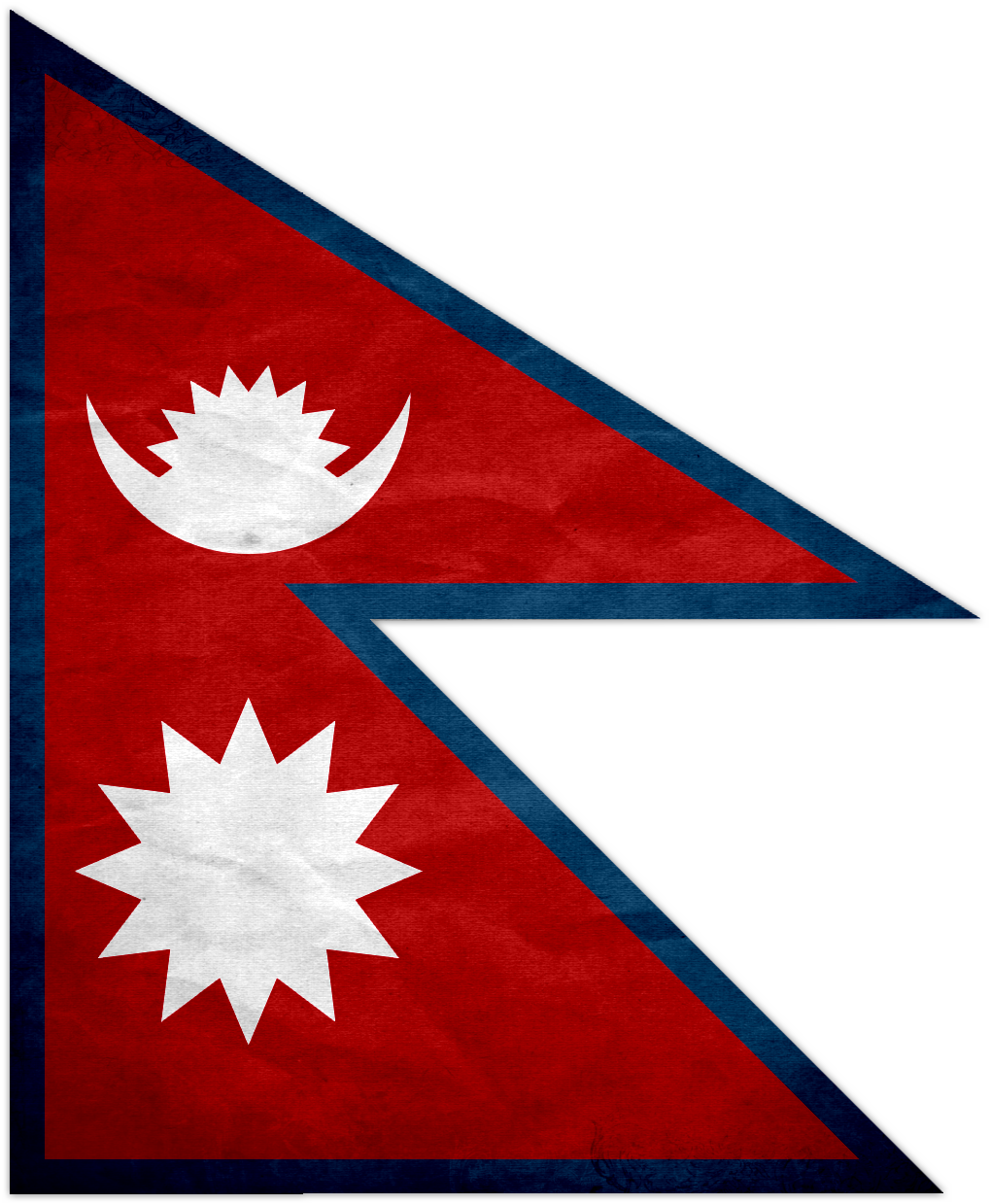
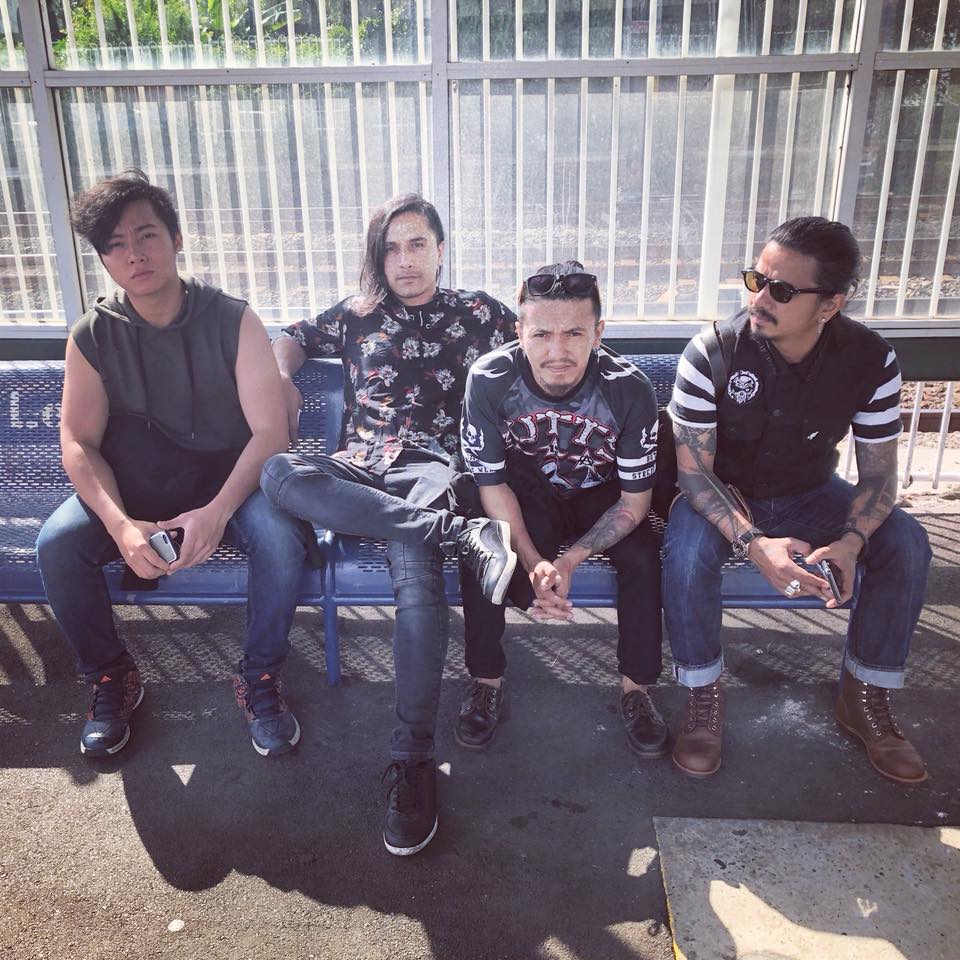
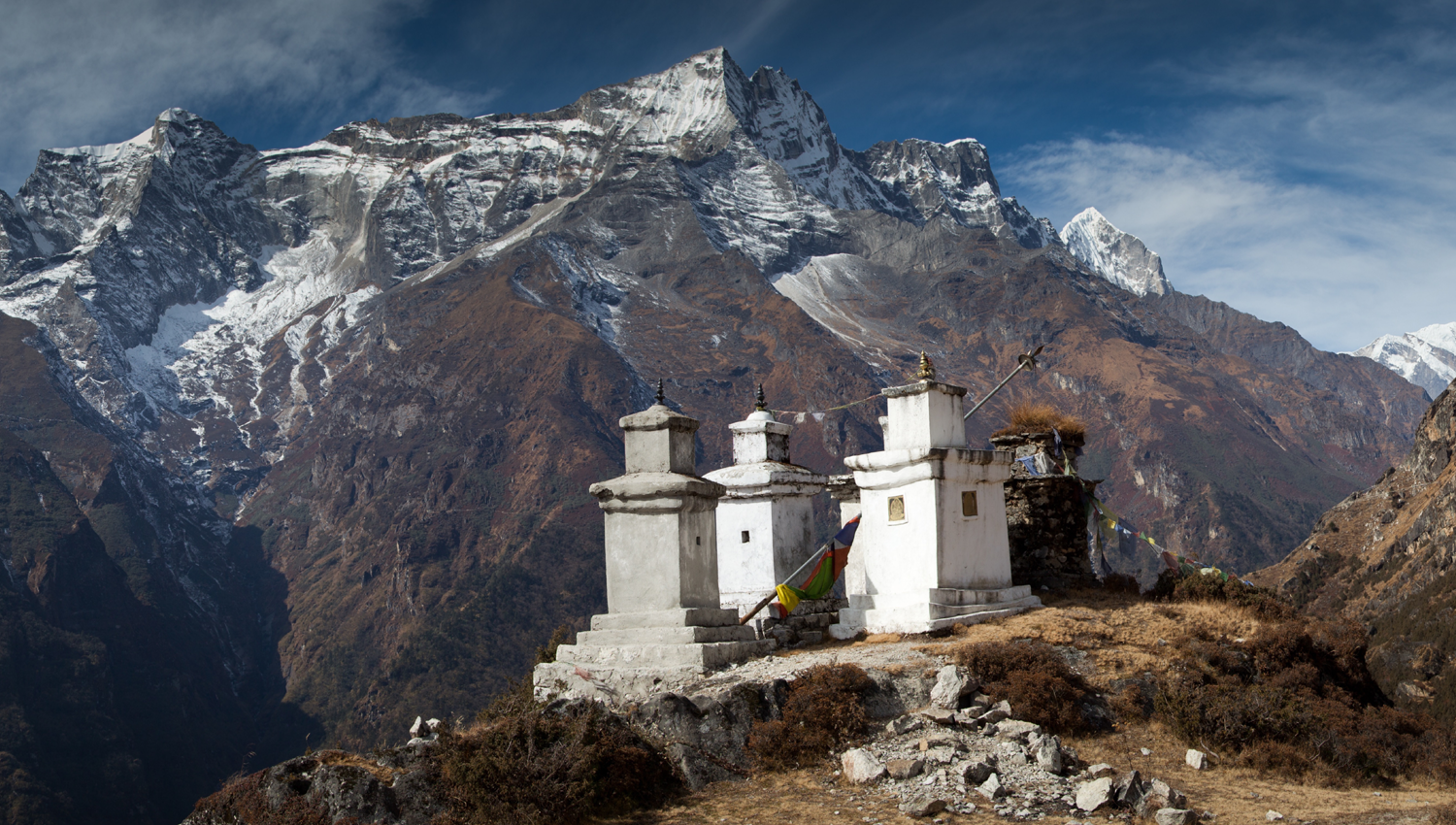
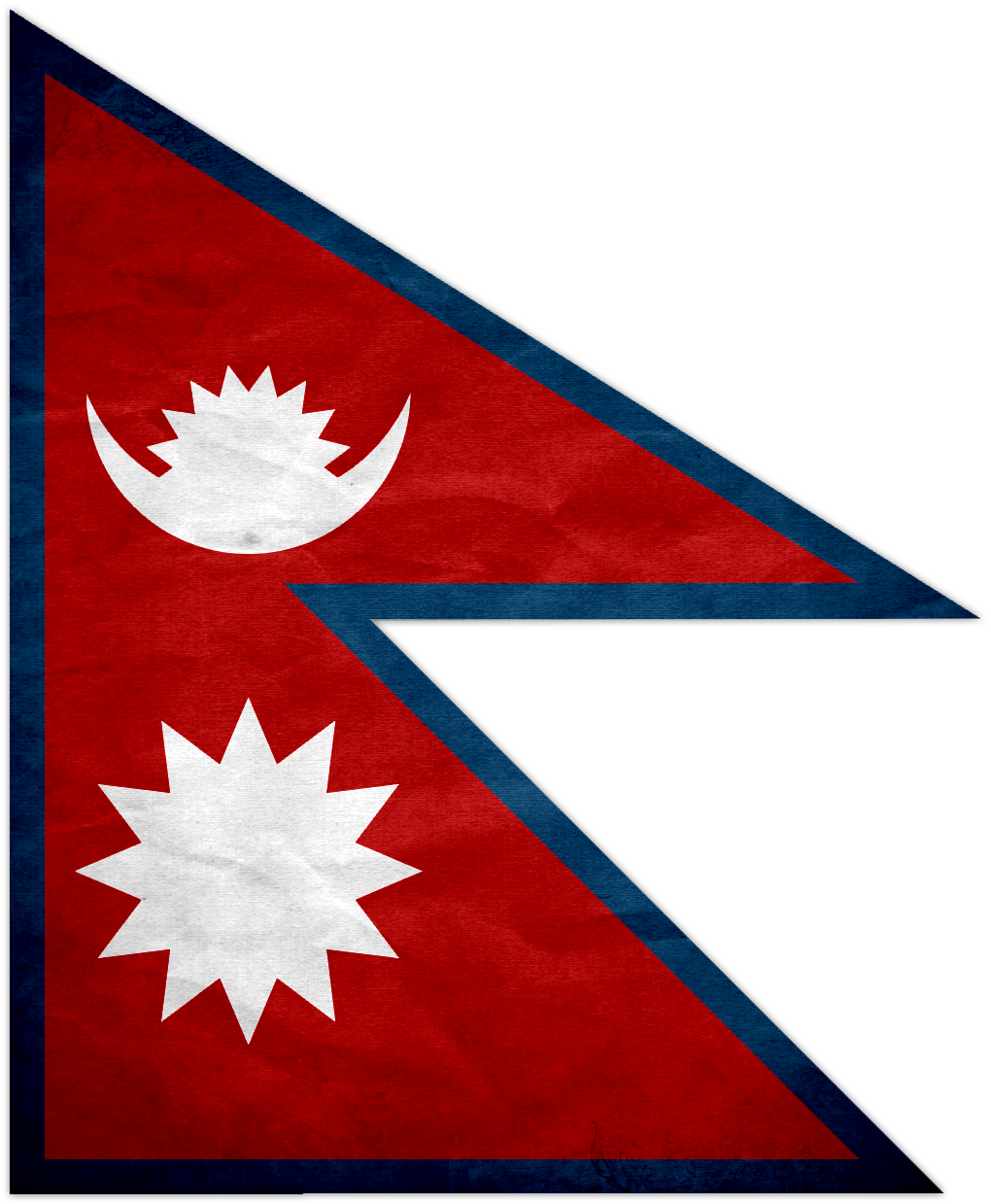
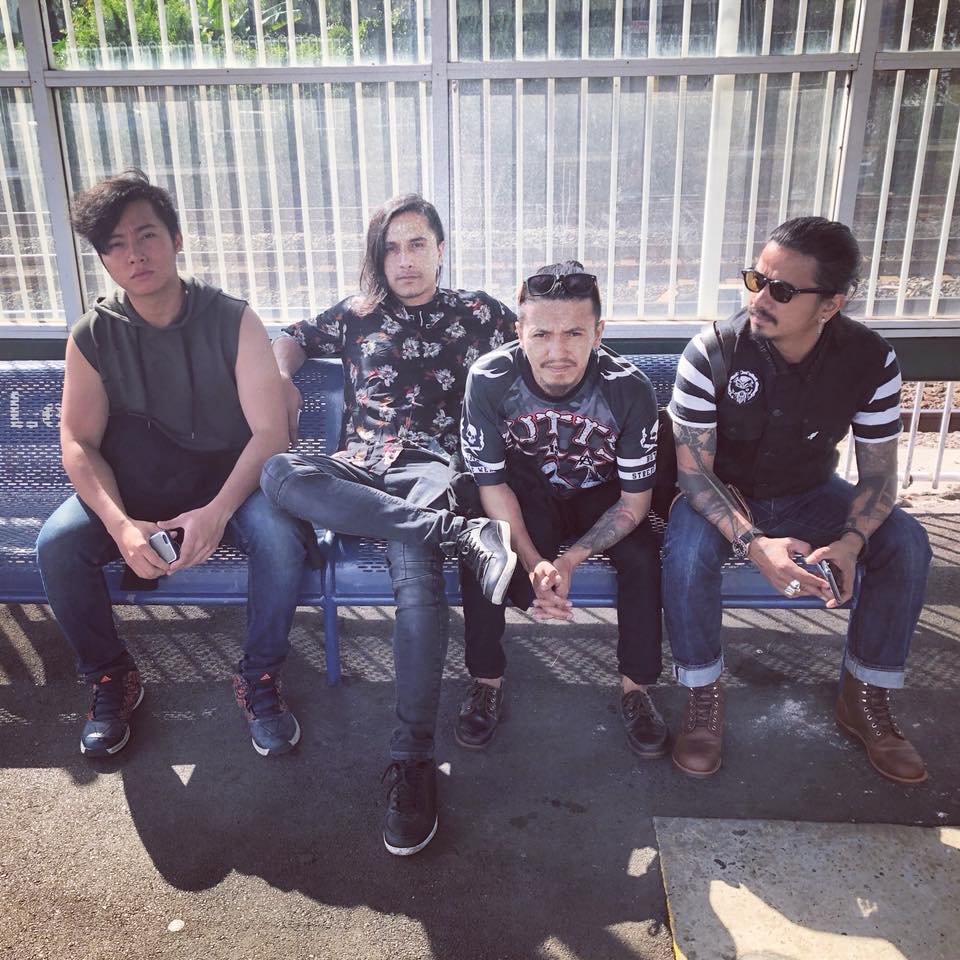
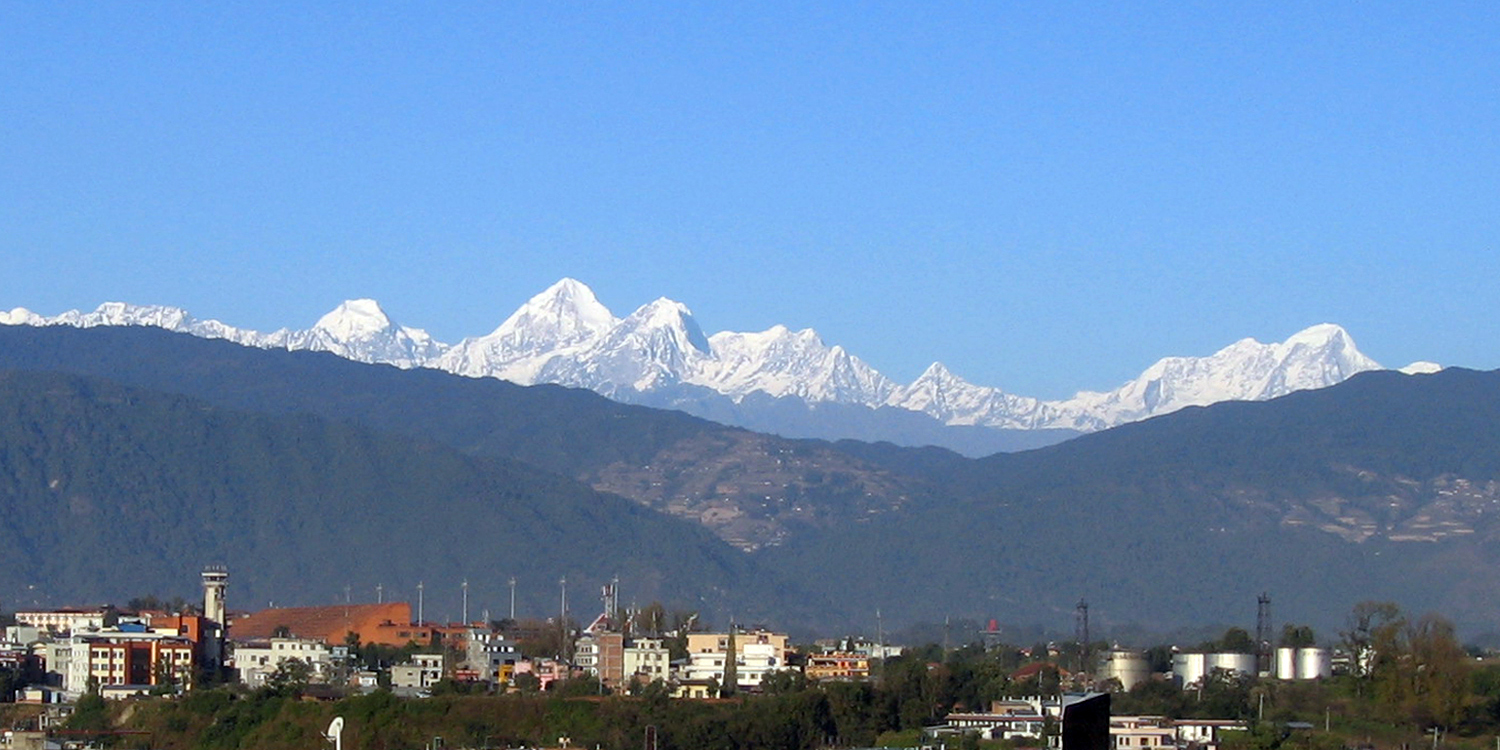
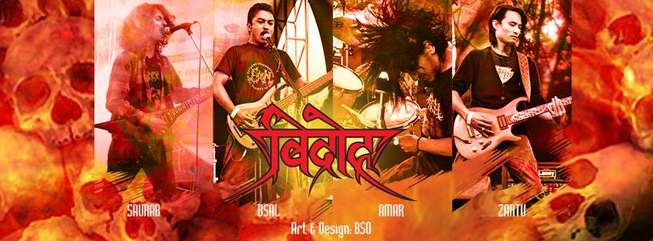
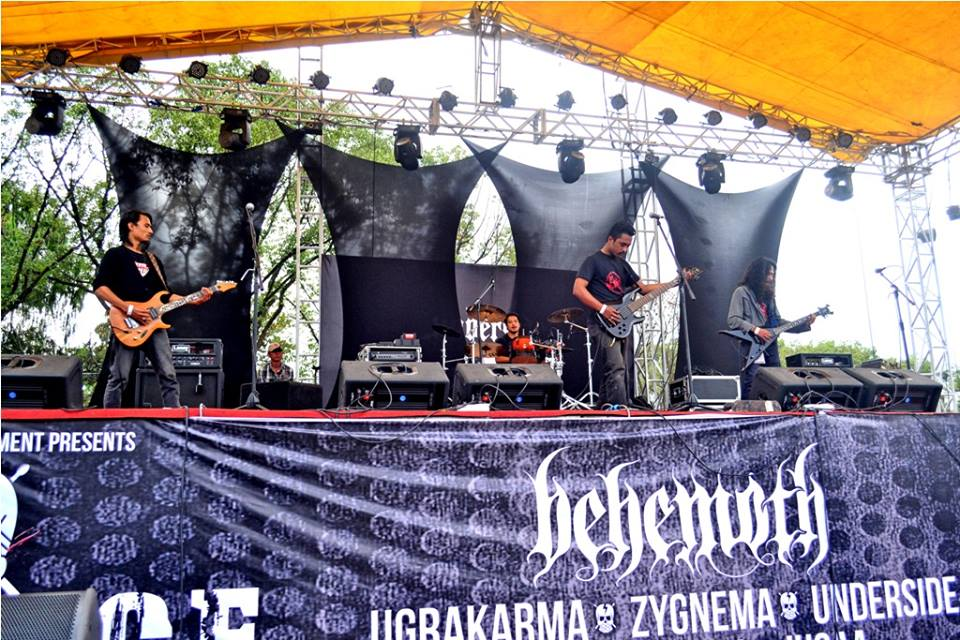
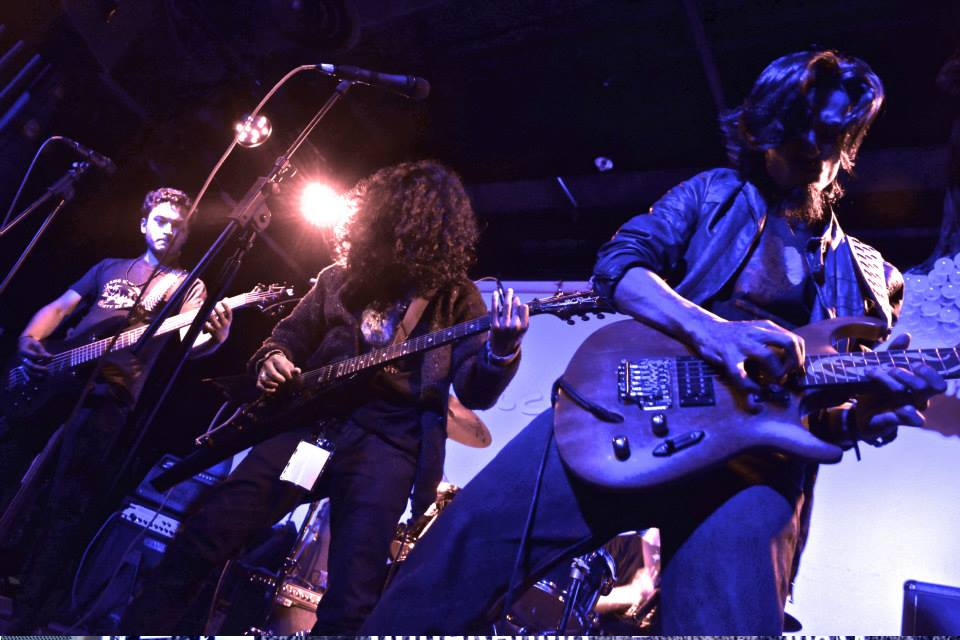
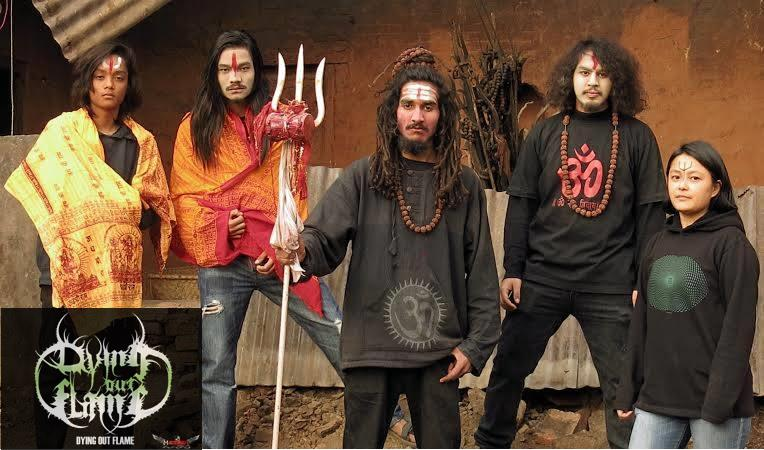

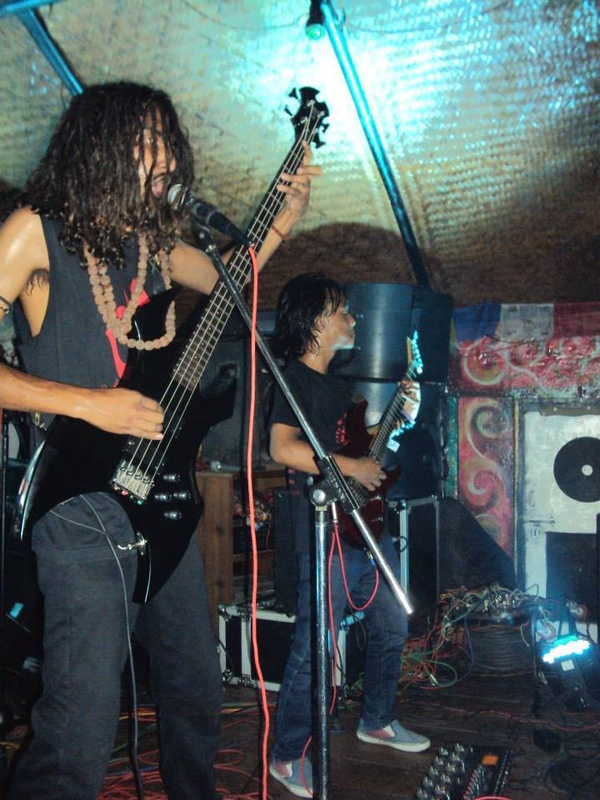
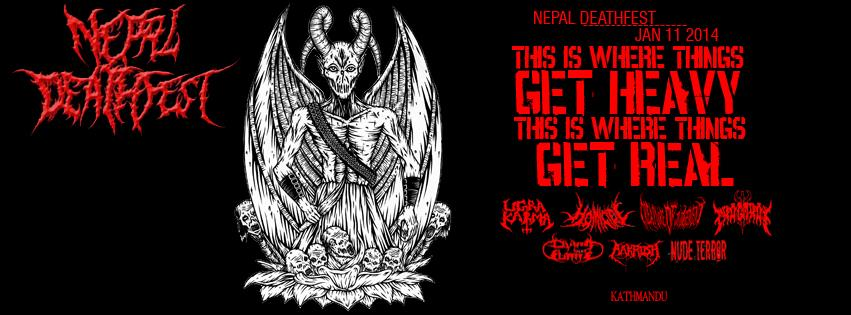
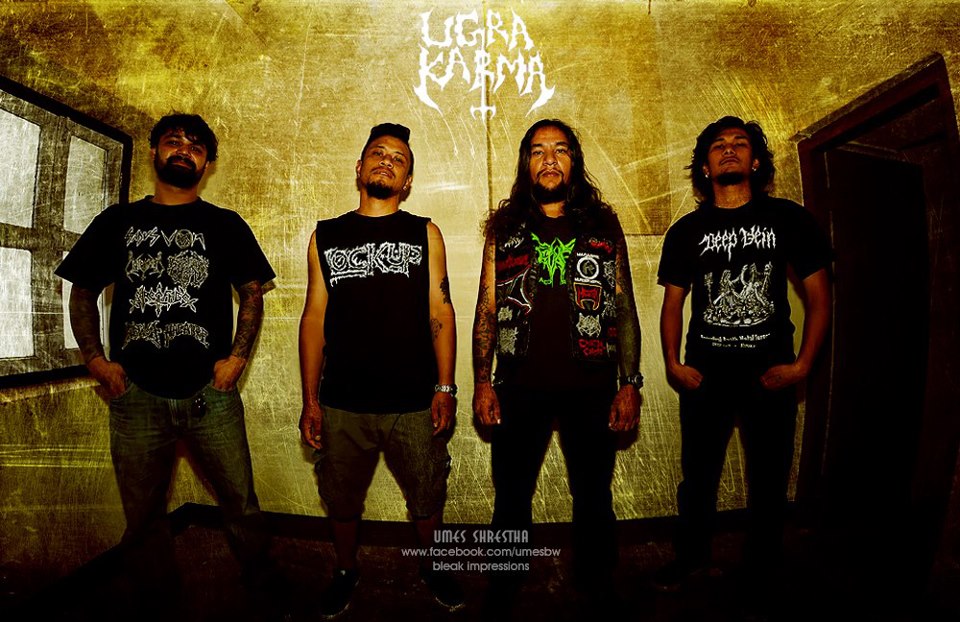
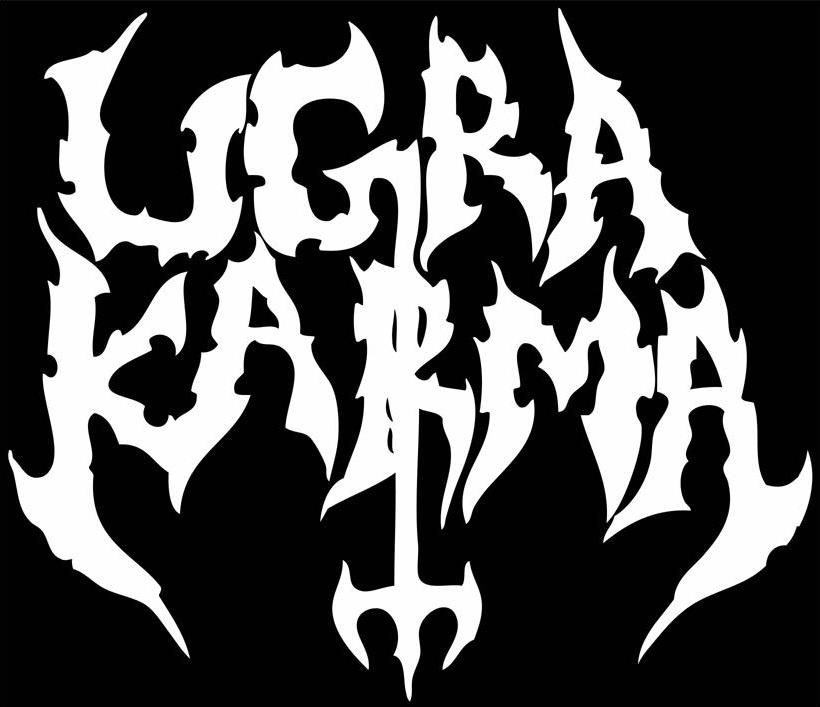
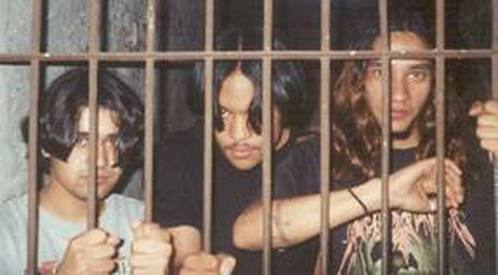
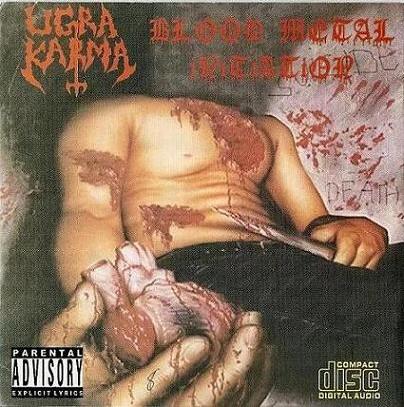
 RSS Feed
RSS Feed